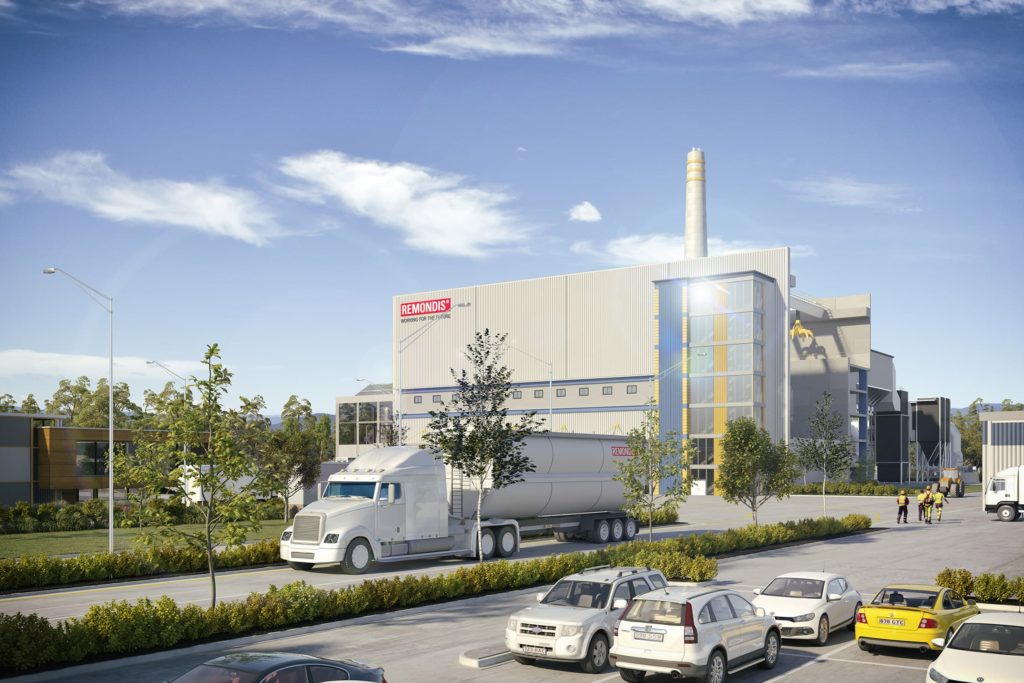A waste-to-energy plant proposed for Ipswich is not currently being considered by Ipswich City Council. Remondis lodged an application with the Coordinator-General for State Government consideration in December last year (2018).
The state government says there is still no timeframe for a Coordinator-General decision.
It was reported in the Queensland Times recently that:
Waste company Remondis has a proposal before Ipswich City Council to build a $400million incinerator at Swanbank.
The waste-to-energy plant will be assessed by Ipswich City Council before a proposal is sent to the Co-ordinator-General to class it as a coordinated project.
That status would fast-track consideration and secure support from the Queensland Government.
The facts are:
1) Remondis has not yet submitted a development application to council; it is therefore not being considered by council officers.
2) The Coordinator-General’s “coordinated project” process actually occurs before (not after) a development application is considered by the council.
3) The coordinated project process is not a development approval; it’s an impact assessment study that is considered by the Coordinator-General, who then makes conclusions and recommendations that the council must take into consideration when/if a development application is actually lodged.
4) A project that has been declared a coordinated project is not automatically approved for construction. If a project is declared by the Coordinator-General to be a coordinated project, it still needs to seek development approval by council (including any associated approvals under the planning act and related legislation).
The following flow chart on the State Development website outlines the process … the council assessment is at the tail end.
This website can be used to determine the projects currently being considered by the Coordinator-General.
There are no Ipswich projects on the list or the map presently.
Also, the Remondis website does not discuss any timeline for submission to the coordinator general.
What is a coordinated project?
A proponent of a project with one or more of the following characteristics may apply to have it declared a ‘coordinated project’ under the State Development and Public Works Organisation Act 1971 (SDPWO Act):
- complex approval requirements, involving local, state and federal governments
- significant environmental effects
- strategic significance to the locality, region or state, including for the infrastructure, economic and social benefits, capital investment or employment opportunities it may provide
- significant infrastructure requirements.
The Coordinator-General chooses the weight attributed to each of the above factors. The Coordinator-General is not bound to declare a project a coordinated project merely because it satisfies one or more of these characteristics.
In making the declaration decision, the Coordinator-General must have regard to:
- detailed information about the project given by the proponent in an initial advice statement
- relevant planning schemes or policy frameworks of a local government, the State or the Commonwealth
- relevant State policies and government priorities
- a pre-feasibility assessment of the project, including how it satisfies an identified need or demand
- the capacity of the proponent to undertake and complete the environmental impact statement (EIS) or impact assessment report (IAR) for the project
- any other matter considered relevant.
Purpose of declaration
A coordinated project declaration does not imply government approval of, support for or commitment to the project in question.
Rather, it means the project requires a rigorous impact assessment involving whole-of-government coordination, either by a comprehensive EIS or a targeted IAR.
The declaration does not exempt the project proponent from the need to:
- obtain necessary development approvals
- comply with relevant planning and environment laws and planning instruments.

